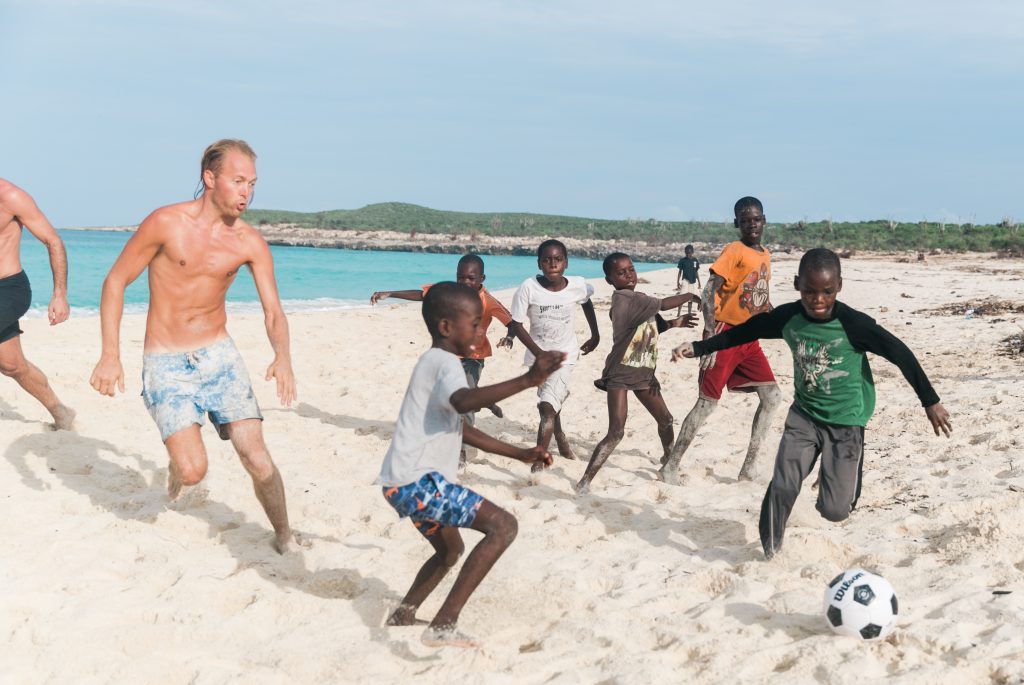Brian Jones of Kin Travel on Sustainable Tourism

Head to www.kin.travel to learn more about their offerings.
For Brian Jones, travel has never just been about seeing new destinations. “It’s all about a connection born of honoring a place,” says the Washington state native. After running an orphanage in Kenya and working with a healthcare organization in Nepal, he saw firsthand the need for more consistent investment and engagement. His solution? The travel industry. “I came to learn how huge the industry’s impact is and sadly, how extractive it largely is. I wanted to find travel providers who embodied sustainability and invested in local communities.” Hospitality as an industry, he discovered, has a lot of progress to make and potential for those pioneering in it. And while intentions are well marketed, the money isn’t always where the mouth is. In fact, the world’s top ten hotel chains contribute less than 1 percent of profits towards local community and environmental initiatives, and as much as 95 percent of emerging-market tourism spending leaves local economies.
And it’s not like travelers want it that way. Today’s global voyagers seek more enriching experiences abroad, and are willing to pay a premium for sustainable products. And in a key shift for the industry, younger generations are becoming the primary spending groups of leisure travel.
That’s why Jones co-founded Kin Travel, which leads adventures committed to sustainable tourism practices and investing in local communities and ecosystems. “Kin is rooted in the idea of family, of interconnection,” says Jones. The company invests 15 percent of its proceeds in local non-profit and social-enterprise partners that drive solutions to the most pressing issues in each destination. Significantly, Kin embeds this doorway for relationships in the travel experience as well.“Our first itinerary is a sailing adventure in northern Haiti with a private chef and yoga instructor. It all funds artisan entrepreneurship, a community health-worker program, and renewable energy solutions in the rural villages who host us. The second itinerary, soon to join the family, is an African safari.”

Brian Jones learns from the locals.
Change Your Lexicon
“Focus on the term ‘sustainable travel,’ rather than just ‘eco-friendly’ or ‘green.’ Ask lots of questions about community initiatives and ways you might support! If you’re a provider, start where you can, commit to a larger progression through one of the certification bodies below and communicate clearly where you are, where you’re going and how your travelers can support the effort.”
Shop around for the right vendor
“Shop for hotels and travel experiences through sustainability certification programs or intermediaries like the Global Sustainable Tourism Council, Sustainable Travel International, National Geographic’s Unique Lodges of the World or the Long Run Initiative. This assures the resources get to where they need to go.”
Invest attention and resources
“Follow these providers on social,” says Jones. “And if they have foundations or investment arms for community and conservation work, host a dinner or become a fundraiser!”

Off-set
Traveling the world by plane is inherently a carbon-costly endeavor. Jones’s remedy? “Buy carbon offsets for your flights through your airline or intermediaries like Terrapass—offsetting my flight to NYC was $12!”
Live it
“Travel is just a fraction of our life, so give full attention to every act—at home or on the road—as an embodiment of compassion. The light switch, the faucet, the commute, the groceries…until the whole day is a field sewn with clear intention.”
582 words
Recent Spherical Articles

